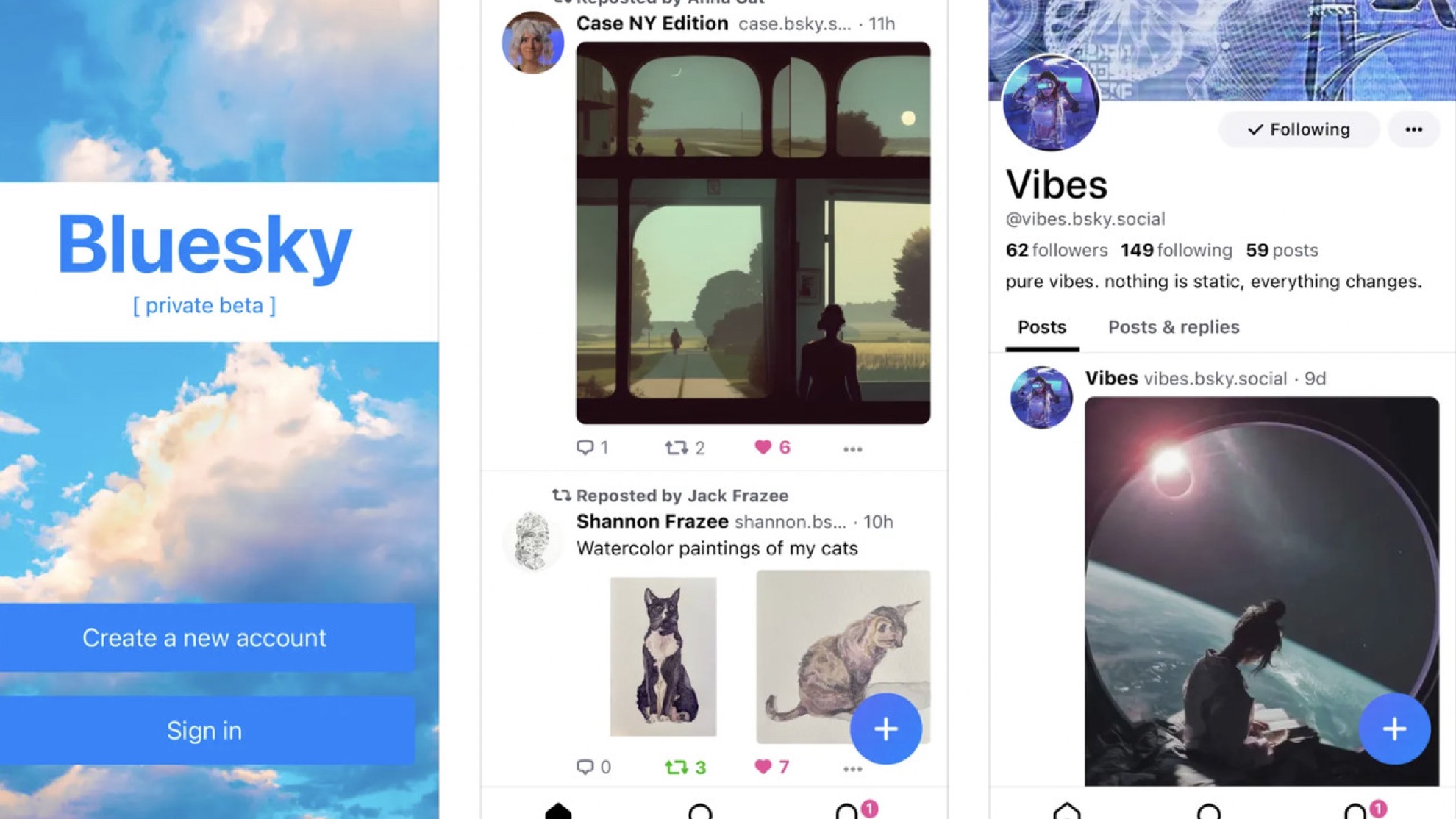The replacement for Twitter is here, but it probably won't replace Twitter
At long last, the billionaire-proof alternative to Twitter has launched. But is it too little, too late?


If you've been wondering when Twitter co-founder Jack Dorsey's new social networking app would arrive, wonder no more: it's here, albeit in private, invite-only beta. Bluesky Social looks very much like Twitter, but at heart it's very different: like Mastodon, it's a federated social network. Essentially, it's Elon Musk-proof.
Twitter is centralised: if you want to communicate with other Twitter users, you have to do it via Twitter.com or the official Twitter apps because there is only one Twitter. With federated social networks, however, things work more like email: there are multiple flavours ("instances") of your social network and you can go with whatever provider you prefer. Those providers then pass messages and attachments to and from each other.
That's how Mastodon works, so for example I use mastodon.social and most of the people I communicate with are on other Mastodon instances. Our respective Mastodon instances communicate with each other so that we can too. I'm free to move to any other Mastodon instance and take my follows with me. Bluesky is designed to work in the same way.
Is Bluesky social just blue sky thinking?
One of the key benefits of a federated social network is that one person can't wreck it. If a particular instance goes bad, it doesn't affect the other ones – and if it doesn't do enough to protect its users or other people from bad actors, it can find itself blocked by the wider network in much the same way known spam networks get blocked by email providers.
That's the good news. But the bad news, I fear, is that Bluesky is coming late to the social networking party. Despite the mass exodus to Mastodon in recent months it's still very quiet over there – busy by Mastodon standards, but quiet by Twitter's. For example I currently have close to 3,000 followers on Twitter; on Mastodon, I've got 150. That's great for conversations – it's got a nice early-90s forums vibe to it – but it does make it extremely hard to just dump Twitter and jump ship. I may well want to move to Bluesky, but chances are the majority of my Twitter connections won't.
That inertia is what makes it so hard for big social networks to be dethroned: Twitter is famously called a "hellsite" by its most active users, but they still use it. Facebook and Instagram sometimes feel like a psychological experiment that's testing how bad you can make a service without people leaving it, and the answer appears to be "very".
I don't know how this is all going to shake out, not least because I don't think Elon Musks' Twitter reign of terror is going to last much longer. But I do think that it's very unlikely that we'll see Bluesky achieve the scale of Twitter, as much as I do love the idea of a more user-focused, egalitarian network. I suspect what we might end up is more of a patchwork of much smaller social networks rather than One Network To Rule Them All.
Get all the latest news, reviews, deals and buying guides on gorgeous tech, home and active products from the T3 experts
If you're interested in checking Bluesky out, you can join the waitlist here.
Writer, musician and broadcaster Carrie Marshall has been covering technology since 1998 and is particularly interested in how tech can help us live our best lives. Her CV is a who’s who of magazines, newspapers, websites and radio programmes ranging from T3, Techradar and MacFormat to the BBC, Sunday Post and People’s Friend. Carrie has written more than a dozen books, ghost-wrote two more and co-wrote seven more books and a Radio 2 documentary series; her memoir, Carrie Kills A Man, was shortlisted for the British Book Awards. When she’s not scribbling, Carrie is the singer in Glaswegian rock band Unquiet Mind (unquietmindmusic).
